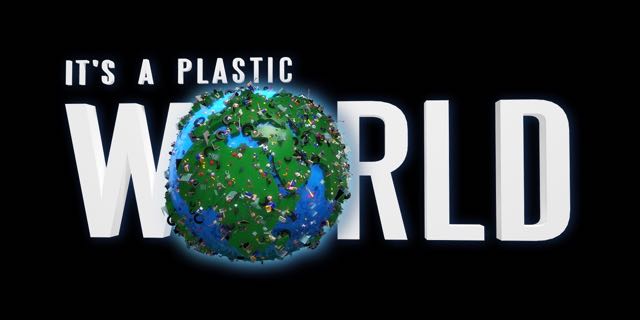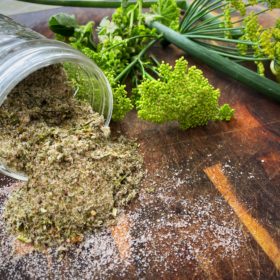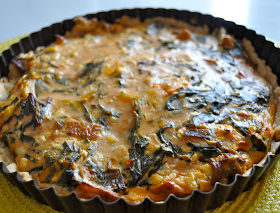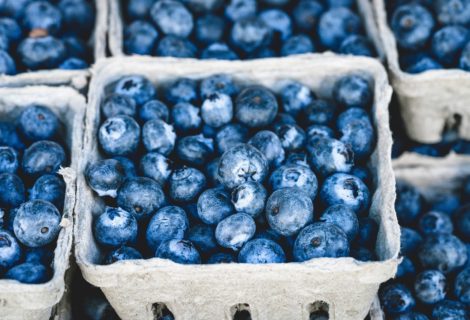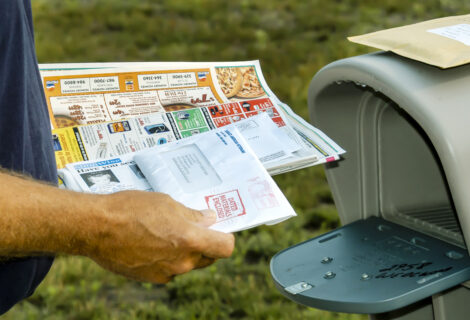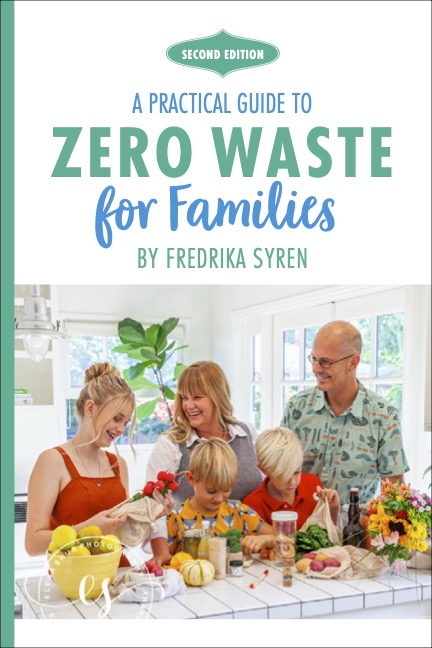It’s been 9 years now since my family began our journey to go plastic free. How is it going, you might wonder. The truth is that going completely plastic free is more difficult than we expected because plastic is in EVERYTHING. But we have for sure reduced significantly the amount of plastic in our home and, more importantly, how much is entering our home.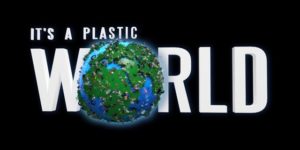
Plastic pollution poses a major threat to our wildlife, our environment — and us — because the majority of the world’s plastic never gets recycled: it ends up in landfills where it can take 1,000 years to break down because it’s not biodegradable. During this time, it will pollute both soil and water. It’s kind of ironic how the very same durability that is the problem with plastic is also why humans favor it.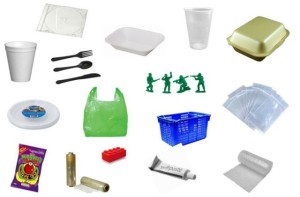
Although most plastic is said to be recyclable, the truth is that most of it is downcycled, a process of converting waste materials or useless products (such as plastic) into new materials or products of lesser quality and reduced functionality. For example, a plastic milk carton can’t be recycled into another milk carton, so instead it becomes plastic lumber. After its life cycle as lumber is over, the plastic (lumber) will end up in a landfill anyway because it cannot be recycled again.
Unfortunately, too many plastic bags end up in the ocean and pose a danger to marine wildlife. Birds and marine animals can ingest or get entangled in plastic bags that are floating around. It’s estimated that about 100,000 marine animals die each year due to plastic trash in our North Pacific Ocean alone. As a matter of fact, there are over 5 trillion plastic pieces weighing over 250,000 tons floating in our oceans and seas. This amount translates into 700 pieces of plastic for every human on earth. A new study found that 17 billion pounds (that is 8 million metric tons) of the stuff spews into the ocean every year from 192 countries with coastal access. So, yes, basically the Pacific Ocean has become the world’s largest landfill.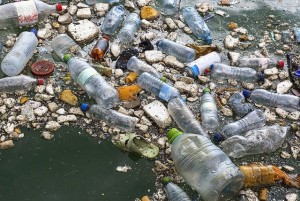
Besides littering our oceans, plastic contains toxins (such as BPA, the most controversial) that leak into soil, water, wildlife and our bodies. These very harmful toxins cause damage to our hormones and nervous system, and create all kinds of problems and illnesses. Research shows that, since WW II, there has been a dramatic increase in breast cancer and that girls reach puberty earlier. These developments have been linked to BPA exposure.
Tips for skipping plastic:
- Skip bottled water, and drink water from glasses or reusable water bottles.
- Use cloth sandwich bags for kids’ school lunch and reusable contains (find them at Life Without Plastic)
- Bring reusable shopping bags whenever shopping.
- Bring reusable silverware or bamboo cutlery to work for lunch.
- Buy wooden toys instead of plastic ones.
- Save old glass jars and use as Tupperware and for storing food in.
- Compost food scraps and, therefore, use fewer trash bags.
- Buy compostable zip lock and trash bags.
- Avoid buying things (such as food) packaged in plastic.
- Switch from plastic toothbrushes to biodegradable bamboo ones.
- Buy food in bulk, and use reusable cloth bags for the dry goods.
- Use cloth produce bags when buying produce.
- Use only biodegradable or real plates.
- Eat at home.
- Skip plastic straws and invest in reusable metal straws.
- Make your homemade popsicles in reusable molds for kids.
- Bring a reusable coffee cup when going to the coffee shop.
- Use cloth diapers and wipes instead of disposable ones.
- Store with bee wraps instead of plastic wrap or foil.
- Convert to paperless bills and invoices.
What is your best tip for skipping plastic?


